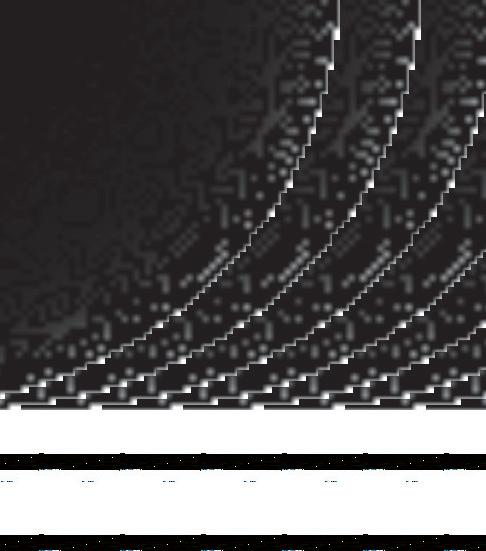
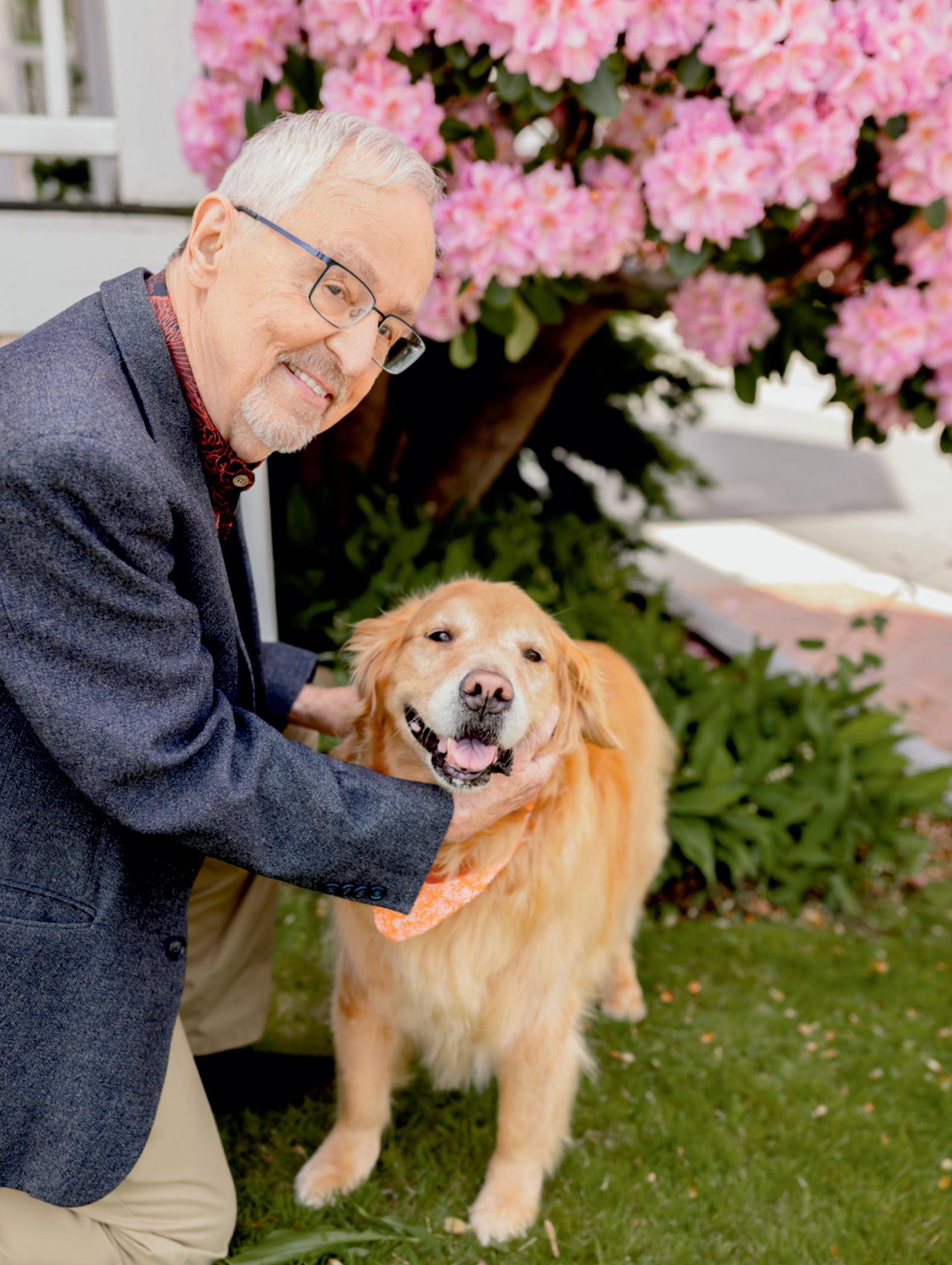


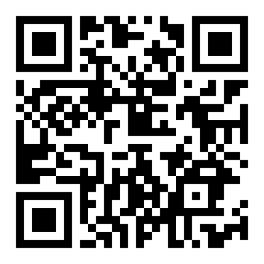
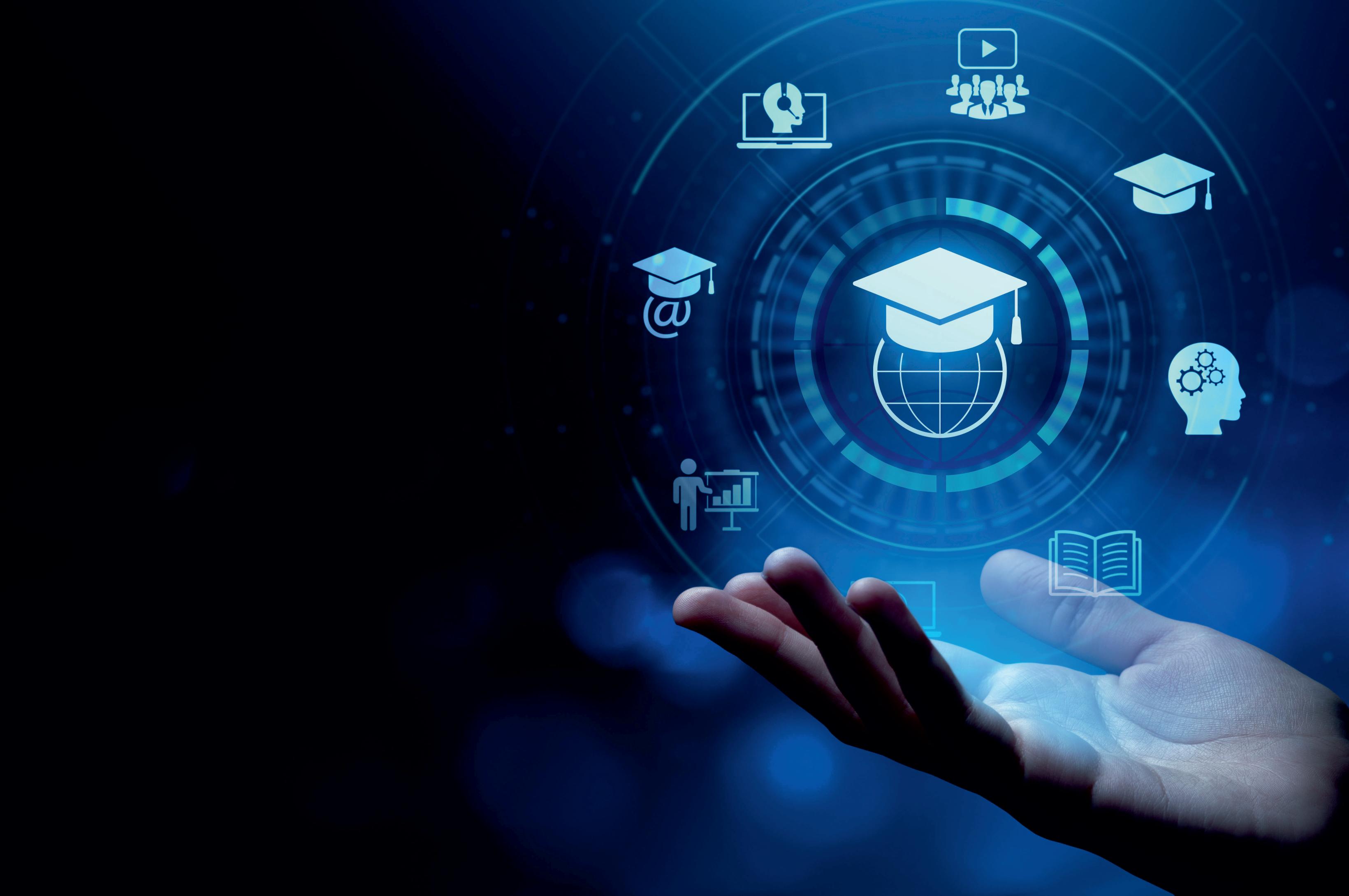













verycityhasitsthinkers,itsdoers,anditsvisionaries.Butonlyafewriseto
becometruecatalystsforchange—thosewhonotonlyshapeideasbuttransform livesthroughthem.InLexington’svibranteducationalecosystem,onename continuestostandtall:RichardLarson.
Thiseditionisdedicatedtocelebratingeducationleaderswhoarenotjustinfluencing classroomsbutreshapingcommunities.AttheforefrontstandsLarson—adistinguished academic,innovator,andlifelongmentorwhoseimpactgoesfarbeyondlecturehallsand laboratories.Hisworkreflectsarareblendofintellectualbrillianceandhuman connection,provingthatthemostpowerfulkindofleadershipbeginswithempathyand curiosity.
RichardLarson’slegacyinLexingtonisrootedinabeliefthateducationisnotaone-sizefits-allsystem.Hechampionedinterdisciplinarylearning,encouragedreal-worldproblemsolving,andalwaysplacedthestudentexperienceatthecenterofhisvision.Whether guidingfutureengineers,advisingonpublicsystems,ordesigningnewmodelsoflearning throughtechnology,heremainedgroundedinasingularmission:topreparemindsnotjust forexams,butforlife.
InrecognizinghimasoneofLexington’smostinspiringeducationleaders,wealso acknowledgethequietyetprofoundwaysheinfluencedthecity’sacademicandcivic fabric.Hismentorshipextendedacrossgenerations,hisresearchinfluencedpublicpolicy, andhistirelessadvocacybroughtinnovationwhereitwasneededmost.
Butperhapswhatsetshimapartevenmoreishisunwaveringoptimisminthepotentialof others.RichardLarsonbelievedthatcuriosityiscontagious—andhelivedthattruthevery day,turningquestionsintobreakthroughsandchallengesintoopportunitiesforlearning.
Thisfeatureismorethanarecognition—itisareflectionofalifethatcontinuestoinspire educators,students,policymakers,anddreamersalike.Lexingtonisbetter,bolder,and moreforward-thinkingbecauseofleaderslikeRichardLarson.
Tocelebrateeducationistocelebratepossibility AndthroughtheexamplesetbyRichard Larson,weareremindedjusthowpowerfulthatpossibilitycanbe.
08.
F E A T U R I N G
Inspiring Generations Through Knowledge, Curiosity and Teaching: Richard Larson’s Enduring Legacy
18. 22. A R T I C L E S From Desks to Destiny Wisdom Keepers of the Modern Classroom
Coding the Future Why Technology is the New Literacy
Editor-in-Chief
Deputy Editor
Managing Editor
Assistant Editor
Visualizer
Art & Design Head
Art & Design Assitant
Business Development Manager
Business Development Executives
Technical Head
Assitant Technical Head
Digital Marketing Manager
Research Analyst
Circulation Manager
Thanh Truong
Sam Carter
Alaya Brown
Maria Evans
Chris Carter
Millie Simon
Judy Smith
Phoebe Jacob
Aisha, Olivia
David Walker
Mia Rodricks
Helena Smith
Eric Smith
Richard Martinez
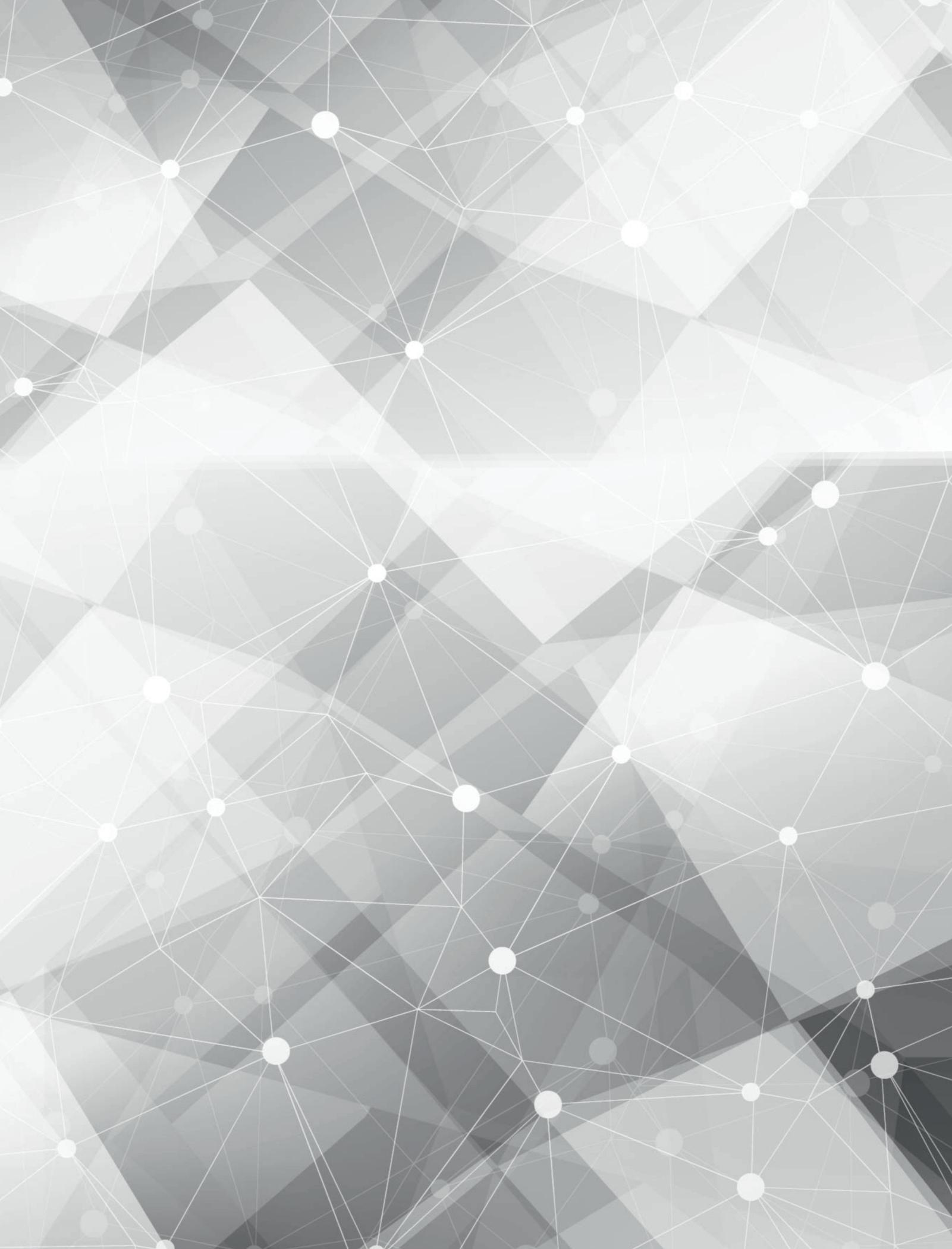

Follow us on www.facebook.com/thecioworld We are also available on RNI No.: MAHENG/2018/75953 www.x.com/thecioworld

Copyright © 2025 The CIO World, All rights reserved. The content and images used in this magazine should not be reproduced or transmitted in any form or by any means, electronic, mechanical, photocopying, recording or otherwise, without prior permission from The CIO World. Reprint rights remain solely with The CIO World.



























The 21st-century classroom is no longer confined to chalkboards and textbooks With digitization, globalized perspectives, and personalized learning on the rise, educators are no longer just conveyors of knowledge—they are architects of curiosity, mentors of resilience,andstewardsofhumanpotential.Today’steachers mustadapttoarapidlychangingworld,wheretheirinfluence extends far beyond academic instruction. They are shaping the character, competencies, and convictions that young mindswillcarryintothefuture.
BeyondtheSyllabus:TeachingasMentorship
Moderneducationisasmuchaboutshapingattitudesasitis abouttransferringinformation.Thebesteducatorsdon’tjust prepare students for exams; they prepare them for life. In a world inundated with information, wisdom becomes the ultimate differentiator Teachers who instill discernment, integrity, and empathy become the real influencers—those whomoldtomorrow’scitizens,innovators,andleaders.They aretrustedguides,helpingstudentsnavigateuncertaintywith confidenceandclarity.
Gonearethedayswhenintelligencewasmeasuredsolelyby IQ tests. Emotional intelligence—self-awareness, empathy, communication, and resilience—is increasingly recognized ascriticaltostudentsuccess.Today’swisdomkeepersmustbe emotionally fluent, capable of recognizing when a student needs support, encouragement, or boundaries. They foster classrooms where psychological safety is a foundation for academic growth, and where students feel seen, heard, and valued.



TechnologyasanEnabler,NotaReplacement
The modern classroom is rich with technology: interactive whiteboards, AI-driven assessments, virtual field trips, and learningmanagementsystems.Buttechnologyisatool—not a teacher The heart of education still beats in human connection.The wisdom keeper uses technology to enhance engagement, personalize instruction, and broaden horizons, while never losing sight of the relational core that defines great teaching. They understand that learning is not just transactionalbuttransformational.
Classrooms today are increasingly diverse. Cultural fluency hasbecomeessentialforeducatorswhomustnotonlyrespect but also integrate a variety of worldviews, traditions, and identities into their teaching. The modern wisdom keeper embraces this diversity, using it to enrich discussions, dismantlebias,andpreparestudentsforapluralisticworld.In doingso,theyempoweryoungmindstoapproachdifference withcuriosityratherthanfear
Themosteffectiveeducatorsarelifelonglearnersthemselves. Theystaycurious,reflective,andopentochange—modeling theveryhabitstheywishtoinstill.Professionaldevelopment isnolongeranoptionalextrabutavitalpartoftheeducator’s journey Whether learning new pedagogical techniques, adapting to policy shifts, or diving into emerging technologies, modern teachers understand that personal growthisinseparablefromprofessionalrelevance.
CharacterEducationasaCoreResponsibility
In an era of global crises and ethical complexity, character education is more than a classroom add-on—it’s a societal necessity. The wisdom keeper leads with values, not just vocabulary. They cultivate environments where kindness, integrity, courage, and critical thinking are part of the daily discourse. By embedding these principles into everyday lessons,theypreparestudentsnotjusttomakealiving,butto makeadifference.
Standardized testing has long dominated educational discourse,butthemodernclassroomdemandsabroaderlens. Wisdom keepers advocate for assessment models that evaluate creativity, collaboration, and problem-solving
alongside academic achievement. They recognize that true learning isn’t always measurable by a test score. Feedback, reflection, and student-led inquiry are becoming the new hallmarksofacademicevaluation.
FrompandemicstoAIrevolutions,modernclassroomshave become microcosms of a rapidly shifting world. Educators who remain steady amid change offer more than knowledge—theyprovideemotionalanchors.Theseteachers adapt not only their lesson plans but also their leadership styles,guidingstudentsthroughuncertaintywithcompassion and flexibility Their classrooms become sanctuaries where changeisnavigated,notfeared.
Every child who walks into a classroom brings with them a universe of possibility The modern teacher holds space for that potential and helps translate it into purpose. They may neverseethefullrippleeffectsoftheirinfluence,buttheseeds they plant in the form of confidence, curiosity, and courage grow long after graduation. It’s in the quiet conversations,theextramomentsofencouragement,andthe unwaveringbeliefinastudent’sworththatreallegacyisborn.
Thefutureofeducationliesnotonlyincurriculuminnovation orpolicyreform,butintheeverydaycourageofteacherswho choose to lead with wisdom. In these classrooms, desks becomelaunchpads,andeverysubjectalenstoexplorelife’s deepertruths.Thewisdomkeepersofthemodernclassroom are not simply educators; they are shapers of destiny—guiding young minds from information to insight, frompotentialtopurpose.






Inaworlddrivenbydigitaltransformation,literacyhastakenona new meaning. Once defined by the ability to read and write, today’sliteracyextendsfarbeyondthepagesofabook.Itisno longer enough to be merely textually fluent; true literacy in the 21st century encompasses technological fluency the ability to understand,interpret,andcreateinthedigitalrealm.Inthisredefined landscape,codingisnotjustaskillfortechprofessionals;itisthenew grammarofinnovation,empowerment,andparticipationintheglobal economy
For centuries, literacy was the cornerstone of education, empowerment, and societal advancement. The ability to read and write opened doors to knowledge, political agency, and economic participation However, the rapid digitization of our lives has transformed how we consume information, how we communicate, andhowwesolveproblems.
Technologynowpermeateseveryaspectoflife—fromhealthcareto agriculture, from logistics to law. In this context, being able to navigatedigitaltools,understanddata,andwriteorcomprehendcode hasbecomeasfoundationalasreadingandwritingoncewere.Justas the printing press revolutionized access to knowledge in the 15th century,theproliferationofcomputersandtheinternethasredefined whatitmeanstobeliterateinthe21st.
Coding—theactofwritinginstructionsthatmachinescanfollow— is fast becoming a universal language. From powering apps and websitestoenablingAI,robotics,andcybersecurity,codingformsthe invisible infrastructure behind modern life Understanding it empowersindividualsnotonlytousetechnologybuttoshapeit.
Inclassroomsaroundtheworld,codingisbeingintroducedasearlyas primary school. The rationale is clear: just as we teach children to express themselves through language, we must now teach them to



create,communicate,andinnovatethroughcode.Thisisnot justabouttrainingthenextgenerationofsoftwaredevelopers —it’saboutfosteringproblem-solving,logicalthinking,and creativityineverystudent.
Accesstotechnologyandcodingeducationisnotjustamatter of academic enrichment — it is a matter of equity. As jobs become increasingly automated and digitized, those without basictechskillsriskbeingleftbehind.Teachingcodingtoall students, regardless of their socioeconomic background, helpsleveltheplayingfieldandpreparethemforafuturethat valuesdigitalfluency
Furthermore, empowering girls, minorities, and underrepresented communities with coding skills has the potential to bridge long-standing gaps in opportunity and representation Initiatives around the world are making strides, but the work is far from over Ensuring equitable access to devices, internet connectivity, and skilled instructorsmustbeaglobaleducationalpriority
One of the greatest shifts that coding education fosters is a transformationinmindset.Whenstudentslearntocode,they transition from being passive consumers of technology to active creators. This cultivates agency, resilience, and an entrepreneurialspirit.
Rather than using apps, students begin to think about how apps work — or how they could be improved. Rather than accepting digital systems as given, they begin to question, redesign, and build.Thissense of agency is critical not only for career readiness but for civic engagement in an increasinglydigitaldemocracy
The World Economic Forum predicts that 65% of children enteringprimaryschooltodaywillworkinjobsthatdonotyet exist. While we cannot anticipate every industry shift or technologicalbreakthrough,wecanpreparestudentswiththe adaptableskillsthatwillservetheminanyscenario.Coding, computational thinking, and digital literacy are among the mostversatiletoolsinthistoolkit.
Moreover,asAIcontinuestoevolve,understandingthebasics of how algorithms work — and how to interact with them ethically and responsibly becomes essential Coding
education, when thoughtfully designed, can also serve as a primer in digital ethics, cybersecurity, and data privacy, preparing students to navigate — and shape — a complex future.
Learningtocodeteachesmuchmorethantechnicalsyntax.It nurturescriticallifeskills:persistencethroughtrialanderror, attention to detail, collaboration, and systems thinking. It buildsthecognitiveflexibilitytotackleopen-endedproblems —ahallmarkofleadershipinanyfield.
Even for students who may never pursue a tech career, this skillsetisinvaluable.Justaswritingessayssharpensthinking regardless of profession, learning to code strengthens analytical capabilities that are universally applicable — in business,thearts,science,andeverydaydecision-making.
To integrate technology as a core component of modern literacy,educatorsandpolicymakersmusttakedecisivesteps. Curriculum reforms should embed computational thinking andcodingfromanearlyage,notasextracurricularhobbies but as essential components of foundational learning. Professional development for teachers, investment in infrastructure, and community partnerships can accelerate thisshift.
Equallyimportantistheneedtodemystifycoding—toshow students that it’s not about memorizing complex languages, but about creative problem-solving. When presented as an accessibleandmeaningfulpursuit,codingcanignitecuriosity andconfidenceinstudentsfromallwalksoflife.
As the lines between physical and digital worlds blur, our definition of literacy must evolve. Reading, writing, and arithmetic remain fundamental — but coding is no longer optional.Itisthebridgebetweenimaginationandinnovation, thekeytofutureopportunities,andthelanguageofourdigital destiny
The future belongs to those who are not only literate in the traditional sense but also fluent in the digital language of change. By recognizing technology as the new literacy, and coding as its foundational grammar, we equip the next generationnotjusttosurviveinadigitalworld—buttolead it.



